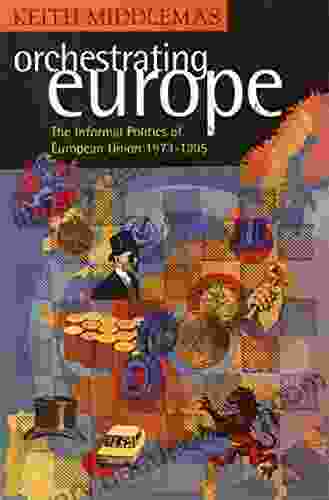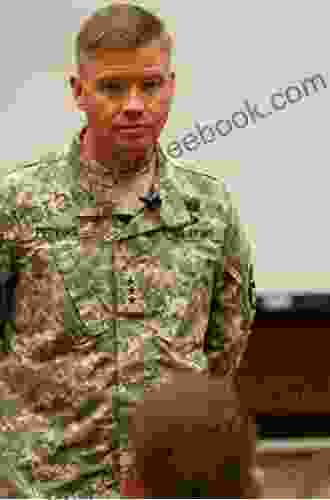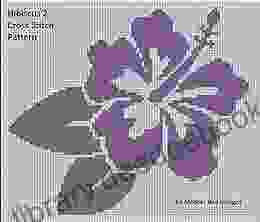Orchestrating Europe: A Comprehensive Exploration of the European Union

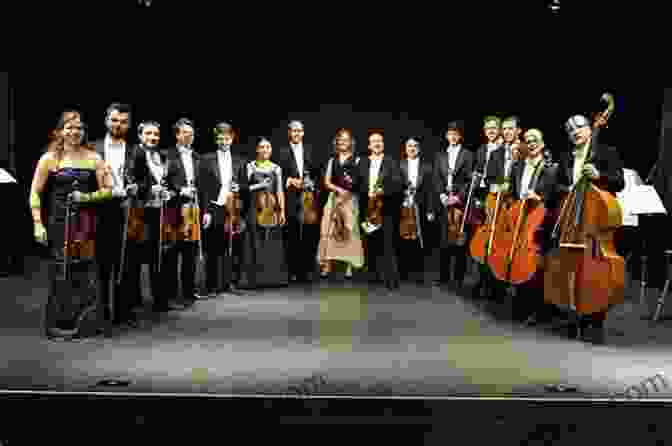
The European Union (EU) stands as a beacon of unity, cooperation, and shared prosperity on the global stage. It is a political and economic union of 27 member states that are located primarily in Europe. The EU has its origins in the aftermath of World War II, when the need for greater cooperation and integration among European nations became apparent. The founding fathers of the EU believed that by pooling their resources and working together, they could prevent future conflicts and foster economic growth.
4 out of 5
| Language | : | English |
| File size | : | 8078 KB |
| Text-to-Speech | : | Enabled |
| Screen Reader | : | Supported |
| Enhanced typesetting | : | Enabled |
| X-Ray for textbooks | : | Enabled |
| Word Wise | : | Enabled |
| Print length | : | 448 pages |
Since its inception, the EU has undergone significant expansion and transformation. What began as a primarily economic alliance has evolved into a multifaceted organization with a wide range of responsibilities, including: promoting peace and stability, safeguarding human rights, fostering economic cooperation, and addressing global challenges.
The EU is a unique and complex entity, and understanding its inner workings requires a comprehensive exploration of its history, institutions, policies, and challenges.
History of the European Union
The origins of the EU can be traced back to the end of World War II. In the aftermath of the war, Europe lay in ruins, both physically and economically. The war had caused widespread devastation, and there was a deep desire for peace and reconciliation.
In 1951, six European countries—Belgium, France, Italy, Luxembourg, the Netherlands, and West Germany—signed the Treaty of Paris, which established the European Coal and Steel Community (ECSC). The ECSC was a groundbreaking agreement that created a common market for coal and steel among the six member states. The goal was to prevent future conflicts by making it economically impossible for any one country to dominate the others.
The ECSC was a success, and it led to the creation of the European Economic Community (EEC) in 1957. The EEC was a more comprehensive agreement that included not only coal and steel, but also other sectors of the economy, such as agriculture and transportation. The EEC was renamed the European Union in 1993.
Over the years, the EU has expanded to include 27 member states. The most recent expansion occurred in 2013, when Croatia joined the EU.
Institutions of the European Union
The EU is governed by a complex set of institutions, each with its own specific role to play. The main EU institutions are:
- The European Parliament is the directly elected body that represents the citizens of the EU. It has the power to pass laws, approve the EU budget, and hold the other EU institutions accountable.
- The Council of the European Union is the body that represents the governments of the EU member states. It is responsible for negotiating and adopting EU laws, and for coordinating the EU's foreign and security policy.
- The European Commission is the executive body of the EU. It is responsible for proposing new laws, implementing EU policies, and managing the EU budget.
- The Court of Justice of the European Union is the highest court in the EU. It is responsible for interpreting EU law and ensuring that it is applied fairly and consistently.
- The European Central Bank is responsible for managing the euro, the EU's single currency, and for setting interest rates.
In addition to these main institutions, there are a number of other EU bodies and agencies that play a vital role in the governance of the EU. These include the European Court of Auditors, the European Ombudsman, and the European Investment Bank.
Policies of the European Union
The EU has a wide range of policies that cover a wide range of issues, including:
- Economic and monetary policy: The EU is a single market, which means that goods, services, capital, and people can move freely between member states. The EU also has a common currency, the euro, which is used by 19 of the 27 member states.
- Agricultural policy: The EU's agricultural policy is designed to support farmers and ensure a stable food supply. The EU provides subsidies to farmers and regulates the production of agricultural products.
- Environmental policy: The EU is committed to protecting the environment and promoting sustainable development. The EU has a wide range of environmental policies, including regulations on air and water pollution, and climate change mitigation.
- Social policy: The EU has a range of social policies designed to protect the rights of workers, ensure equal opportunities, and promote social justice. These policies include directives on working conditions, maternity leave, and equal pay.
- Foreign and security policy: The EU has a common foreign and security policy, which is coordinated by the High Representative of the Union for Foreign Affairs and Security Policy. The EU has played a key role in promoting peace and stability in Europe and beyond.
The EU's policies are constantly evolving to meet the challenges and opportunities of a changing world. The EU is committed to working with its partners to build a more prosperous, secure, and sustainable future for Europe.
Challenges Facing the European Union
The EU faces a number of challenges, including:
- Economic challenges: The EU has been hit hard by the global economic crisis. The eurozone crisis has led to high unemployment and slow economic growth in some member states. The EU is working to address these challenges through a variety of measures, including fiscal austerity and structural reforms.
- Political challenges: The EU is facing a rise in populism and nationalism. Some member states are questioning the value of EU membership and are calling for a return to national sovereignty. The EU is working to address these challenges by promoting dialogue and understanding.
- Security challenges: The EU is facing a number of security challenges, including terrorism, organized crime, and cybercrime. The EU is working to address these challenges by strengthening its borders, increasing its law enforcement cooperation, and developing new security technologies.
- Brexit: The UK's decision to leave the EU is a major challenge for the EU. The UK is one of the EU's largest member states and its departure will have a significant impact on the EU's economy, politics, and security.
Despite these challenges, the EU remains a strong and united organization. The EU is committed to working together to build a better future for Europe.
The European Union is a complex and multifaceted organization. It is a unique experiment in international cooperation that has brought peace, prosperity, and stability to Europe. The EU is not without its challenges, but it remains committed to working together to build a better future for Europe.
As the EU continues to evolve, it is important to remember the founding principles of unity, cooperation, and shared prosperity. These principles have served the EU well for over 60 years, and they will continue to guide the EU in the years to come.
4 out of 5
| Language | : | English |
| File size | : | 8078 KB |
| Text-to-Speech | : | Enabled |
| Screen Reader | : | Supported |
| Enhanced typesetting | : | Enabled |
| X-Ray for textbooks | : | Enabled |
| Word Wise | : | Enabled |
| Print length | : | 448 pages |
Do you want to contribute by writing guest posts on this blog?
Please contact us and send us a resume of previous articles that you have written.
 Book
Book Page
Page Chapter
Chapter Text
Text Story
Story Library
Library E-book
E-book Magazine
Magazine Paragraph
Paragraph Bibliography
Bibliography Preface
Preface Synopsis
Synopsis Manuscript
Manuscript Codex
Codex Tome
Tome Bestseller
Bestseller Classics
Classics Library card
Library card Biography
Biography Autobiography
Autobiography Memoir
Memoir Dictionary
Dictionary Thesaurus
Thesaurus Character
Character Catalog
Catalog Borrowing
Borrowing Study
Study Research
Research Scholarly
Scholarly Lending
Lending Journals
Journals Reading Room
Reading Room Interlibrary
Interlibrary Literacy
Literacy Study Group
Study Group Storytelling
Storytelling Awards
Awards Reading List
Reading List Book Club
Book Club Textbooks
Textbooks Tatiana Boncompagni
Tatiana Boncompagni Renee Rominger
Renee Rominger Yeqiao Wang
Yeqiao Wang Michael Kranish
Michael Kranish Nancy Oswald
Nancy Oswald Jean Vincent Blanchard
Jean Vincent Blanchard Bruce Hansen
Bruce Hansen Fehrin Brindley
Fehrin Brindley Susan Holloway Scott
Susan Holloway Scott Belva Plain
Belva Plain Frederic Spotts
Frederic Spotts J S Scott
J S Scott Buzz Walneck
Buzz Walneck Katalina Ramblewild
Katalina Ramblewild Paulo Freire
Paulo Freire Malcolm C Searles
Malcolm C Searles Barbara Ebel
Barbara Ebel Ruthie Dean
Ruthie Dean Susan Rosson Spain
Susan Rosson Spain Charles Kane
Charles Kane
Light bulbAdvertise smarter! Our strategic ad space ensures maximum exposure. Reserve your spot today!
 Ivan TurnerFollow ·6k
Ivan TurnerFollow ·6k Duncan CoxFollow ·19.1k
Duncan CoxFollow ·19.1k Isaac MitchellFollow ·8.9k
Isaac MitchellFollow ·8.9k Avery SimmonsFollow ·17.3k
Avery SimmonsFollow ·17.3k Daniel KnightFollow ·2.3k
Daniel KnightFollow ·2.3k Esteban CoxFollow ·14.1k
Esteban CoxFollow ·14.1k J.R.R. TolkienFollow ·2.3k
J.R.R. TolkienFollow ·2.3k William ShakespeareFollow ·5.4k
William ShakespeareFollow ·5.4k

 Ralph Ellison
Ralph EllisonHealth Care Global Viewpoints: Samantha Whiskey
Samantha Whiskey is a global health...

 Gabriel Garcia Marquez
Gabriel Garcia MarquezTeacher Educators' Reflections on Culturally Relevant...
In today's...
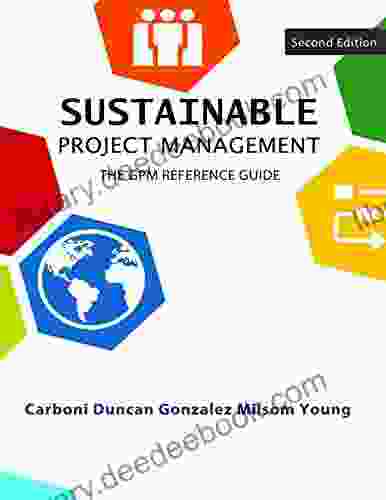
 Levi Powell
Levi PowellSustainable Project Management: The GPM Reference Guide...
In today's rapidly changing world,...

 Isaac Bell
Isaac BellThe Captivating World of "Dreaming Awake Falling Under"
A Journey Through...

 Clarence Brooks
Clarence BrooksGovernance Regulations Valuations Mergers And...
In today's complex and ever-changing...
4 out of 5
| Language | : | English |
| File size | : | 8078 KB |
| Text-to-Speech | : | Enabled |
| Screen Reader | : | Supported |
| Enhanced typesetting | : | Enabled |
| X-Ray for textbooks | : | Enabled |
| Word Wise | : | Enabled |
| Print length | : | 448 pages |


